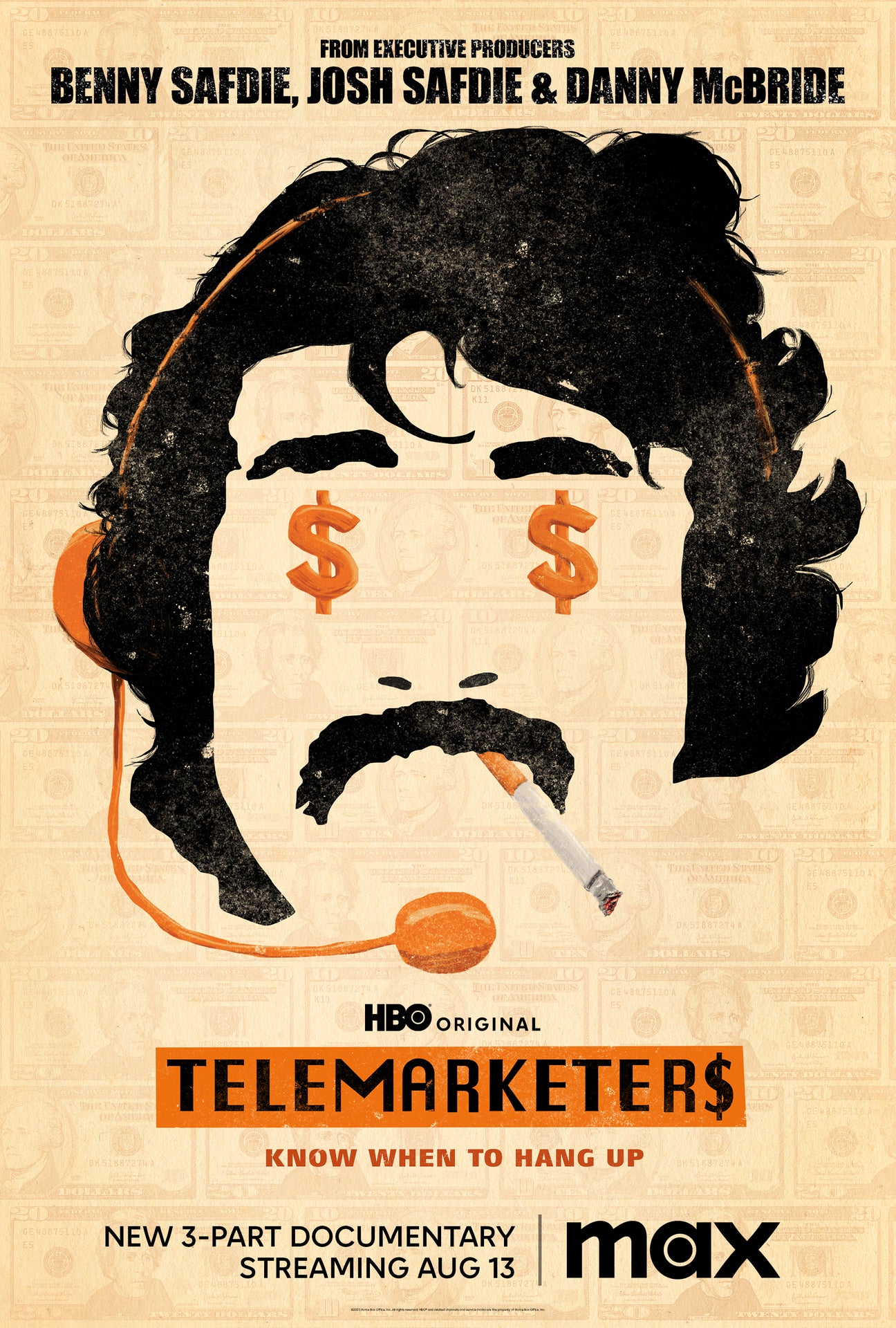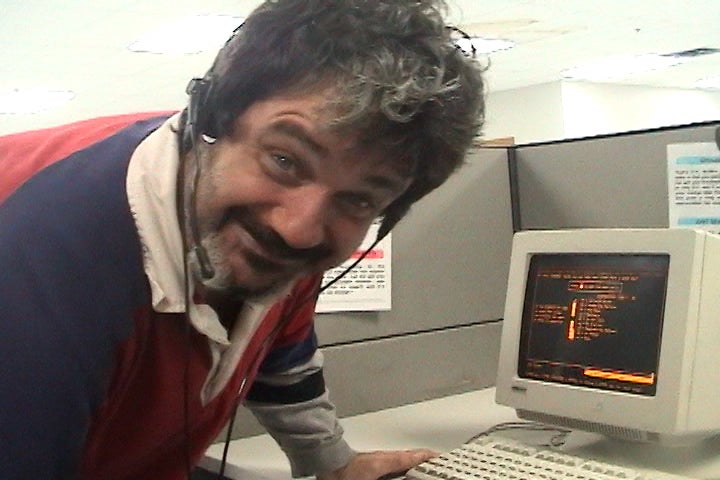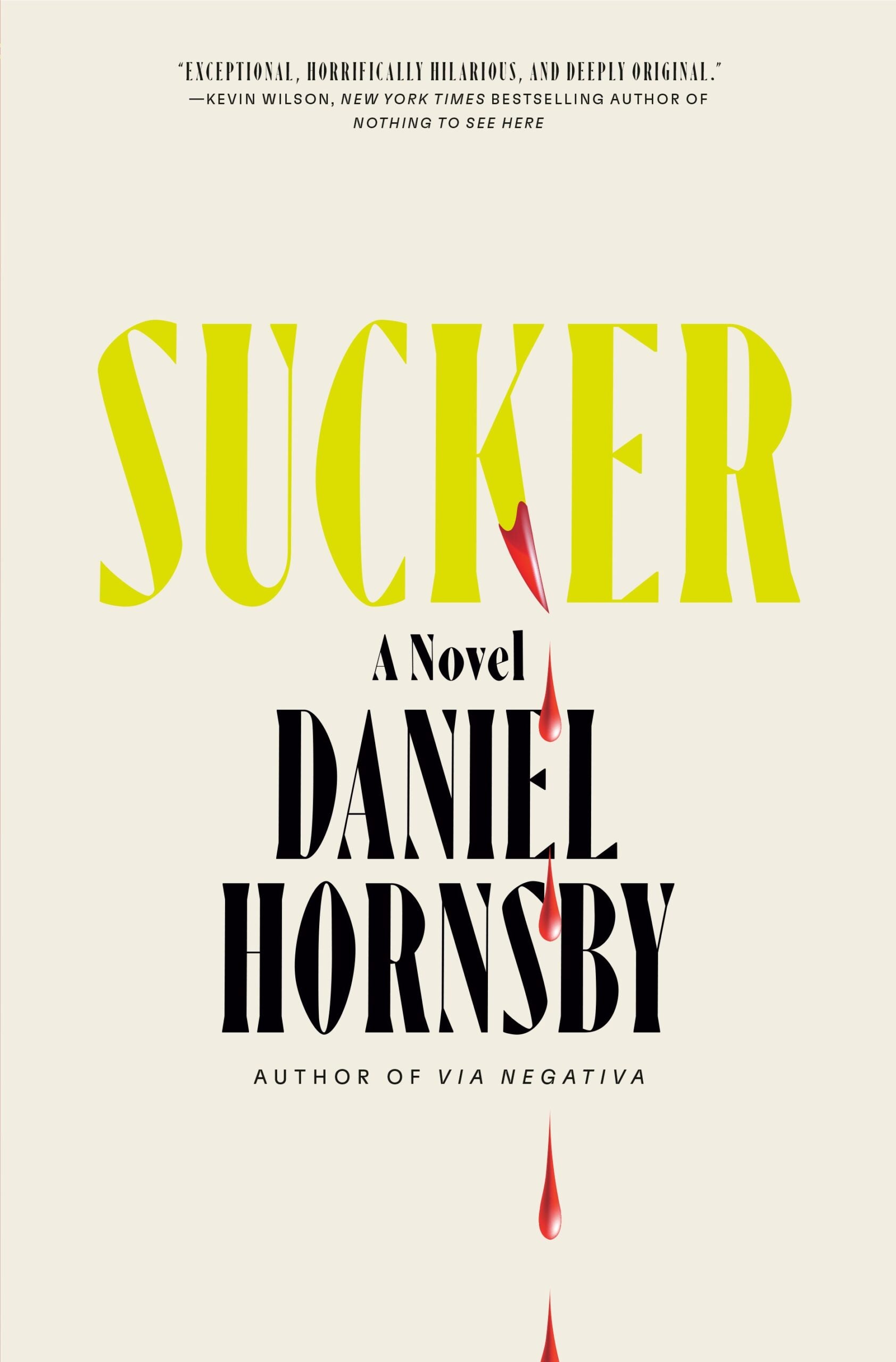Comedian Aparna Nancherla talks about her battle with impostor syndrome. Also, “Telemarketers” director Sam Lipman-Stern gives us the lowdown on the shady side of the business. And Daniel Hornsby on his scathing Silicon Valley novel, ‘Sucker.’
Featured in this Show
-
Comedian Aparna Nancherla squares off against her inner critic
The legendary comedian and star, Groucho Marx, has a much-attributed maxim that he wouldn’t want to be a part of any club that would have him as a member.
For comedian Aparna Nancherla, Groucho’s sentiment best explains the dread of her impostor syndrome, which she said only worsened as things in her career got better.
“This feeling of, you’re going to be found out or perceived as not deserving of what you have — I think as you climb the ladder of success or expectations from others, you feel like you’re more in over your head than when you’re newer, or people maybe don’t have a preexisting opinion of you, and you can make a first impression,” she told Wisconsin Public Radio’s “BETA.”
Nancherla joined “BETA” to talk about her essay collection, “Unreliable Narrator: Me, Myself, and Impostor Syndrome” and how she managed to battle her vicious inner critic, combat her depression and turn her social anxiety into material for her stand-up career.
The irony of writing a self-doubt book reflecting on her own inner critic (which she playfully likens to Statler and Waldorf from “The Muppet Show”) isn’t lost on Nancherla.
“I think I maybe foolishly underestimated my inner critic’s tenacity and perseverance in wanting to question anything I do. So, I think in writing a book about self-doubt, I perhaps gave it its largest platform ever,” she quips. “But maybe in a sense, I was also just giving it the ability to do some of the work for once. I was like, ‘You have so much to say. Why don’t you do something for me that I can monetize?’”
Nancherla’s parents emigrated from India and she self-identified in her school years as “almost white” to fit in or assimilate.
“I think I was feeding very much into the assimilationist culture that a lot of Indian-American families fall into, in that you want to be high achieving and kind of fit in with your peers, but then you don’t want to stick out in any unfavorable ways,” Nancherla said.
“So, I think you’re very much trying to emulate the people around you who are embodying status — whether that’s social or financial — that you think will provide security and stability,” she continued. “I think for us, growing up in the suburbs that were predominantly white, that it felt like we were looking to those families for kind of these unspoken cues for how to behave and present and not show too much of ourselves.”
Nancherla also admits that she was painfully shy and introverted as a kid. She shared how her mom enrolled her and her sister in a public speaking course to try and push Nancherla out of her shell a little bit.
“I don’t know how many children are in public speaking classes, but we were certainly the only kids in our class,” Nancherla jokes.
Those classes led to community speech contests that the Nancherla children were entered in. Nancherla’s first competition prompt was one about what issues were facing the Indian-American community. While the other adults went in a very serious direction addressing bigotry and the like, Nancherla zagged and delivered an address on her qualms with Bollywood.
“It was pretty tongue-in-cheek, but I think they were happy to have a lighter topic. They really resonated with all the kind of little quips and digs I was making at them,” Nancherla recalls.
“I think the humor really created kind of a bridge that I wasn’t expecting, and opened people up in a way that humor does,” she continued. “I think that’s one of the cool things about making people laugh. It’s like they kind of have to put their guard down in a way. So, I think it connected me to people in a way that I had never really experienced before.”
While that unexpected warm reaction may have piqued Nancherla’s interest in humor and being on stage, it wasn’t until her 20th birthday party where she mustered the courage to go up on stage during a local open mic night.
“I knew I had this interest and I loved being creative, but I didn’t quite know what my entry point was into comedy,” Nancherla stated. “So I think I just started watching more stand-up and I finally tried it in college when I was home one summer.”
Like her Bollywood speech, Nancherla had no preconceived expectations of how her first set would go.
“In fact, I had very, very low expectations of how it would go. And then I think it went well enough that I was like, ‘Oh, maybe this is something I can do.’ Because I think if it had gone badly, I very easily would not be here talking to you right now,” she said.
If you’ve ever seen one of Nancherla’s sets, you know that she’s very open about her dealings with depression. In “Unreliable Narrator,” she opens up about how she was immensely relieved when she was first diagnosed with depression.
“I had always grown up with this kind of more melancholy disposition and being prone to these more low periods and being pretty existential from a young age, and I think just having a name for it was an immense relief. To just know that there was an explanation for some of the drama that was going on in my head,” she recalled.
Nancherla gave her depression a name, too. She called it Brenda. She said that during her writing process, she was exhausted by writing the word depression over and over again.
“I have to find some way to make this a little bit more tolerable. So I think I did that just to have a little fun and make it a little lighter. But yeah, I mean, in my day-to-day life, I certainly am not that chummy with it yet,” Nancherla said. “I think in writing (the book), it gave it a little bit of a silliness and absurdity that it helped in those moments.”
That approach isn’t dissimilar to Nancherla’s stand-up sets, which also offered her a way to address her anxiety and depression, which she said she was struggling with acutely.
“I didn’t really know what else to do. I felt like I was kind of in a rut and as a creative, my go-to is to kind of create. So, I was like, ‘Well, I guess I’ll just try to write about them.’ Obviously, easier said than done. It’s not always easy to translate those experiences when you’re having them,” she said.
“When it did resonate with people, and I feel like in a way I wasn’t expecting, it encouraged me to kind of delve further into those areas and connected me in a deeper way than maybe I had in previous comedic topics,” Nancherla continued.
Naturally, like her stand-up, Nancherla’s humorous approach in “Unreliable Narrator” has given a platform for many to discuss serious issues like anger, depression and anxiety in a way that feels more open. It definitely has for her.
“I think writing the book has made me kind of contextualize it in the same way that I’ve done with talking about mental health in my standup, where it sort of gives it more of a point of reference or a framing for me that maybe I was lacking before,” she said. “Just creating that little bit of distance or space can be very impactful with these things we experience in our brain where they can take up so much room and really just color our entire reality, like being able to see it as a lens I use versus objective truth has been really, really vital.”
-
Sam Lipman-Stern exposes the truth behind those annoying calls in his HBO docuseries, 'Telemarketers'
To say that Sam Lipman-Stern has had a strange career path is an understatement. At the age of 14, he started working the phones for a New Jersey telemarketing company called the Civic Development Group, or CDG. Lipman-Stern thought he was raising money for firefighter and police charities, but he was wrong. The money was actually going to their bosses.
Following the shutdown of CDG, Lipman-Stern and his colleague, Patrick Pespas, decided to take down their former employer by exposing the truth behind telemarketing.
Lipman-Stern is the director of the fascinating HBO three-part docuseries, “Telemarketers.” He sat down with Wisconsin Public Radio’s “BETA” to talk about his path from working at CDG to exposing it.
This conversation has been edited for clarity and language. Videos may contain some unsuitable language.
In the beginning
Doug Gordon: Sam, when did you start working at CDG, Civic Development Group?
Sam Lipman-Stern: I started working at CDG when I was 14 years old. I was in the ninth grade going to public school and I just hated school. I started taking off Mondays first and eventually, I decided, I can’t go. I don’t want to go to school anymore. I told my parents that I didn’t want to go to school. They’re total hippies, and they’ve always been pretty hands off, free-range kind of parents. And so they were like, “All right. You can leave school, but you have to get a job.”
A friend of mine said, “Hey, man, I know a place. They’ll hire anyone. They’ll hire you at 14. It’s a telemarketing company.” That’s all he told me. So the next day, we rode bikes into New Brunswick, New Jersey, and go into this call center. The managers had me read the script a couple of times, and I got hired that day, and that started my journey at Civic Development Group.
DG: Tell me about your colleagues at CDG. What were they like?
SLS: When I first walked into CDG, I had no idea what to expect. I didn’t know what the job was. I walked in and there was all these really built, muscular, jacked guys doing push-ups next to the water fountains. And then you walk into the office and it’s just raucous chaos. Everyone’s yelling, screaming, laughing.
The callers at CDG were mainly ex-convicts. A lot of people in halfway houses. And this was one of the jobs that was possible to get. There was like seven other graffiti writers working there. They were selling drugs out of the office, like massive amounts. Any drug you wanted. There was people selling pit bulls, which you see in Episode One.
There was even prostitution going on in there, I later found out. Our job was to raise money in donations for the police.
DG: What was a typical day working there like for you, or was there no such thing as a typical day?
SLS: There was no such thing as a typical day at CDG. You know, one day there might be a fight in the aisle, real brawl going on. I saw that before. I saw FBI agents come in and drag someone out of the office. No explanation. You just never knew it was going to go down there.
DG: How about the job itself, though, when you’re making these calls. Can you tell me about that?
SLS: The job was basically to read this script to raise money on behalf of police organizations and some other charities. They would train you to sound like a cartoon character of a cop from like the 1950s. Like what does a cop sound like in a Bugs Bunny cartoon?
So they would teach you to put this deep voice on and use certain words. And it was like acting on the phone, you know?
So (DEEP VOICE): “Hi, Assemblyman Stern calling on behalf of the New Jersey Fraternal Order of Police. Good afternoon, sir.”
You would perfect these techniques. And then if someone said no when you ask them for a donation, there were rebuttals for everything. In return for the donation, you’d get a decal, a sticker for the back of your car and then sell some stickers. You can see them all over the United States.
And the idea was that you wouldn’t say it got you out of a ticket, but you were kind of walking the line between saying it would get you out of a ticket and not saying it. But people thought they (the decals) would get them out of a speeding ticket or criminal charges. That’s why a lot of people wanted those stickers.

Graphic for the HBO series, “Telemarketers.” Image courtesy of HBO The whole truth
DG: When did you realize that what you were doing was a grift?
SLS: One of the veterans’ charities that we were calling on behalf of ended up on the 10 o’clock news. And they said they had gotten busted for being like basically being a scam or the owner was pocketing all of the money. CDG, the company I worked for, would take 90 percent on average of the donation, and they would give 10 percent to the police or to the veterans or to a cancer charity.
But once the charity gets the money, what happens to it? Well, in this particular case, it was a total scam. It was a self-serving charity where the owner was pocketing all the money raised. So for me, that was the first time where I really started thinking, “Oh, wait, what’s going on here?”
Why did the police only get 10 percent? And the managers would say, well, 10 percent is better than 100 percent of nothing. Which to me at the time was like, OK, I can buy it. But once we started calling on behalf of soundalike charities, like instead of Make-A-Wish Foundation — a well-known charity — we would call on behalf of the Children’s Wish Association, for example, something along those lines. These were like scam charities.
Taking down telemarketing
SLS: We started filming all these videos and putting them up on YouTube in the early days of YouTube. Then Pat Pespas, the star of the show, kind of came to the forefront. He was just such a charismatic, interesting character. He loved being on film. And so we kind of started doing a documentary about Pat.
Around the same time as this story came out on the news that the veterans charity was a scam, Pat was like, “Hey, man, let’s stop doing a documentary about me and my crazy life. Let’s make an investigation into what we’re involved in to try to tell the world.”

Courtesy of HBO DG: As you say in the doc, Pat and you wanted to take down the industry.
SLS: I worked there all together for seven years. Pat had worked in the industry since the 90s, in the telemarketing industry for police and other charities and nonprofits. We just felt like we were the only guys that could do it. And the idea was to try to get the story out there so that the money could start going to good charities and good causes. We did not know it would end up taking us like 15 to 20 years to do this documentary, and we didn’t even really know what documentary filmmaking was at the time. We were just like, let’s just film and investigate and see what happens.
Civic Development Group got shut down in 2010. It was the biggest consumer protection lawsuit in U.S. history at the time. The Federal Trade Commission sued the company for misleading donors. And a few months ago, the company agreed to pay a $90 million fine and get out of the fundraising business.
When the press release came out from the FTC talking about the case, one thing that they didn’t mention was the involvement of these police organizations. And what we learned as we investigated was that the major police organizations in the United States were really hand in hand with the telemarketing companies in what the government considered defrauding hundreds of millions of dollars from the American public.
So telemarketing companies would be shut down by the government that was involved in this. They would be demonized in the press and the police involvement and other charity involvement was always downplayed, but especially the police involvement was downplayed. And then the police organizations would go to another telemarketing company and continue the same type of kind of fraudulent fundraising.
One last thing that was really surprising to us: As we pick the investigation back up with just how wild, unregulated and more prevalent this scam is right now in 2023 than it’s ever been… you have robocalls. Just how big this thing is, you know, you’d think it (robocalling) would have been taken down when CDG got shut down. But no, it’s alive and well and stronger than ever.
-
Daniel Hornsby's novel takes on Elizabeth Holmes, Theranos — and vampires
The protagonist of Daniel Hornsby‘s novel, “Sucker,” is a guy named Chuck Gross. Chuck’s father is a billionaire who exploits labor, manufactures weapons and denies climate change. So it’s no surprise that Chuck dropped the last part of his surname in order to avoid comparisons.
Chuck became an entrepreneur and started his own punk record label called Obnoxious Records. Unfortunately for Chuck, his father threatens to cut him off, so Chuck has no choice but to get a real job.
Former “BETA” guest Kevin Wilson describes “Sucker” as “exceptional, horrifically hilarious, and deeply original.” And he’s absolutely right.
“Sucker” can be described as equal parts Theranos scandal, mixed with HBO’s “Succession.” The result is one of the greatest combinations of horror and humor since Mel Brooks’ “Young Frankenstein.”
Hornsby joined Wisconsin Public Radio’s “BETA” to talk about the novel, how he managed to pull off this balance of horror and humor and where this idea came from.
This interview has been edited for clarity and length.
Doug Gordon: What is the origin story behind “Sucker?”
Daniel Hornsby: So it started out as a joke between me and my friends around the time of the Elizabeth Holmes scandal really hitting the public.
We were just joking about, like, what if Elizabeth Holmes and Theranos were vampires? And then the more I thought about it, the more I realized, thinking about tech and its relationship to our lives now at this kind of late stage — parasitism and vampirism really is a good way in.
If you think about it, we have these little devices leeching all our data and giving that away without our consent.
Really, we have the kind of siren servers, venture capital. You have some kind of overt vampiric imagery with some of the rumors about Peter Thiel and the “Blood Boys” and this kind of pervasive quest for immortality that seems to be shared among the CEO’s of Silicon Valley.

Jacket design by Evan Gaffney. Courtesy of jdillontoole/Getty Images DG: “Sucker” has been described as John Carreyrou’s book about Theranos, “Bad Blood: Secrets and Lies in Silicon Valley” meets the HBO series, “Succession.” Were they influences that you drew on while writing “Sucker”?
DH: I had a pretty complete draft of the book before I dipped my toe into “Succession.” The Carreyrou book is truly kind of the Bible of the Theranos implosion. And so I drew a lot of details from that, trying to kind of chart the rise and fall of the company, and where were they at this stage in their development, what were they doing with the FDA, charting that and outlining it — so I could find my own evil parallel universe version as far as “Succession” goes.
I did want to withhold that from the book as an influence just so that I could have my own take on the superrich. But what I did use was some of the kind of supplementary materials that were like pieces about the show sometimes that would do these deep dives into fashion or some of the objects in the show. And they would point me towards other things, other sources that would help me get a sense of how the superrich live.
DG: Your novel takes place in San Narciso, the fictional city that is the setting for a Thomas Pynchon novella, “The Crying of Lot 49.” Why did you decide to set it there?
DH: I’d only been to San Francisco one time before I started writing this book, and that was maybe a year before Facebook went public. So I saw the last kind of gasp of that maybe idealized older version of the city where you could stay at a hostel with your friends for 30 or 50 bucks a night. I realized it’s a city with so much history, such a dense map and geography that I really didn’t have the expertise to figure out how this will kind of work in Silicon Valley, in San Francisco, in the Bay Area.
So I started thinking about how other writers have kind of taken on this strategy, taking on California especially. And there are Pynchon centers. So there is this like parallel universe city between L.A. and San Francisco that shoots up quickly. You know, after the Second World War has certain nodes of industry in it, like the fake Yoyodyne corporation.
And it seems like, oh, I could build off that and revisit it 60 years later. Some of the bands, some of the topography could be the same. And in a way, it made sense to me because there’s been this kind of hyper-acceleration and deterioration of San Francisco just with tech. And they’ve really projected their visions and their own narratives onto the city in these zany ways that feels aligned with the Pynchon-verse.
DG: I was wondering if another reason for using San Narciso as the setting is that the name itself is very similar to narcissism. Was that part of the appeal or did that not enter into it?
DH: Pynchon came up with the name, and I like the idea of this mirror. It’s this mirror world. And part of my ideas of parasitism, too. I wanted to kind of feed off of Pynchon’s world, and so I could appropriate the neighborhoods and be my own little literary vampire, so to speak, and suck some of the blood out of that and use it for my purposes.
DG: Very well-said. Let’s talk about your protagonist, Chuck Gross. Can you tell us a bit about him?
DH: Yeah. He’s the black sheep in a family of 40-carat fleeces. He is the son of a sinister billionaire who is responsible for maybe the death of half of the fauna on the planet. Someone deeply wrapped up in the fossil fuel refining industry, tied up in other kind of dubious business ventures, weapons manufacturing, things like that. So his dad is disgustingly rich. He’s trying to find his way in the world to get money from his trust. He needs nominal employment.
And so he goes to his Harvard classmate who has started this little biotech company, and she gives him a job as a special adviser on ethics. And so with that in place, then he can get money from his trust, keep his label going and hopefully keep his punk persona separate from his business.
DG: I’ve read that you like to draft things by hand, and I’m curious about why you like to do it that way.
DH: Yeah, something about the drafting process lets me really feel like, OK, this is what the reader is experiencing at this time. It sets up a challenge to just tell the story in order with a beginning, a middle and an end.
And then later, as you enter it into the computer, you kind of get that second draft. You’re up to draft two by the time it’s in your word processor, and that gives you a body of text for things to stick to. So if you resequence things, at least you still have that kind of initial draft where you have that sense of order and discovery.
DG: In my limited attempts at writing, I find that there’s less pressure on myself if I’m writing by hand, because then it feels purer to me. And also I don’t have a computer in between that set-up, so it feels more direct with that. Would that be fair to say on your behalf?
DH: It keeps you from backtracking, for sure. And I think, you know, the arc of the project of any book project is going to be three or four years at least. And I think in the short term, we’re just trying to discover a new project. It’s really nice to have a pretty little notebook that you’re just trying to fill with good stuff and get a sense of completion instead of dropping things into the abyss of the word processor and crossing your fingers.
DG: Did you write an outline for “Sucker” or did you just start writing and see where your muse took you?
DH: I did. Once I had the engine of the voice of this somewhat self-aware, rich jerk Chuck, I then wanted to just see, OK, what kind of beats do I want to hit? Where can I take this? I was reading a lot of Patricia Highsmith, who I think is really the master of plot and psychology and the ways that plot and character actually become kind of the same thing.
Episode Credits
- Doug Gordon Host
- Adam Friedrich Producer
- Steve Gotcher Producer
- Steve Gotcher Technical Director
- Aparna Nancherla Guest
- Sam Lipman-Stern Guest
- Daniel Hornsby Guest
Wisconsin Public Radio, © Copyright 2024, Board of Regents of the University of Wisconsin System and Wisconsin Educational Communications Board.




